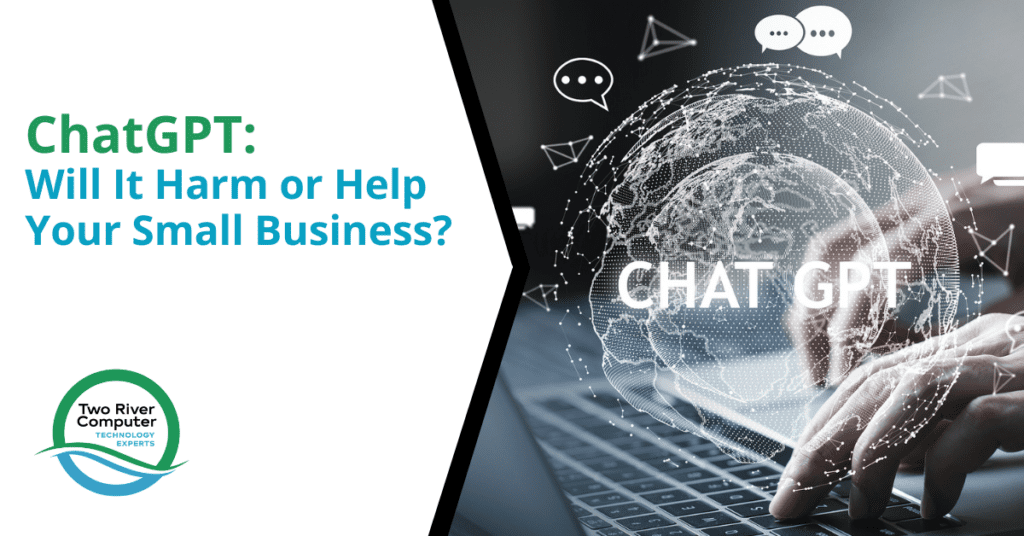
In recent years, artificial intelligence (AI) has made significant advancements, and one of the most remarkable achievements in natural language processing is ChatGPT. Developed by OpenAI, ChatGPT is a state-of-the-art language model that uses deep learning algorithms to generate human-like responses to text prompts.
As a small business owner, you might be wondering how this technology can impact your operations. In this article, we will explore the potential benefits and drawbacks of incorporating ChatGPT into your small business strategy.
Understanding ChatGPT
ChatGPT is an advanced language model that has been trained on a vast amount of diverse text data. It can engage in conversations, answer questions, and generate coherent and contextually relevant responses. The model’s ability to understand context and provide useful information has sparked interest in various industries, including customer service, content creation, and marketing.
However, it’s crucial to note that ChatGPT is not perfect. The technology still has limitations, and it is essential to use it mindfully. There have been instances where ChatGPT generated biased or inappropriate content, raising concerns about its ethical use. As a business owner, it is essential to be aware of these limitations and potential risks before incorporating it into your operations.
Enhancing Customer Service
One of the most significant benefits of using ChatGPT in a small business setting is the potential to enhance customer service. Chatbots powered by ChatGPT can provide immediate responses to customer inquiries, reducing response times and improving overall satisfaction. By integrating ChatGPT into your website or social media channels, customers can receive quick and accurate answers to common questions, such as product availability, pricing, and order status.
- Improved Efficiency: Chatbots can handle multiple customer queries simultaneously, saving time for both customers and your support team.
- 24/7 Availability: With ChatGPT-powered chatbots, you can offer round-the-clock customer support, ensuring that customers’ concerns are addressed even outside regular business hours.
- Personalization: By analyzing customer interactions, ChatGPT can personalize responses and recommendations based on individual preferences and purchase history.
Content Creation and Marketing
Another area where ChatGPT can benefit small businesses is in content creation and marketing. The ability to generate high-quality and engaging content can significantly streamline your marketing efforts and attract a broader audience.
- Blog Posts and Articles: ChatGPT can assist in generating blog posts and articles on various topics, which can save time and resources for your content marketing team.
- Social Media Content: Coming up with creative social media posts can be challenging, but ChatGPT can help create engaging and shareable content.
- SEO Optimization: ChatGPT can be used to identify relevant keywords and phrases, aiding in SEO optimization for your website and content.
Elevating Productivity and Innovation
As a small business owner, improving productivity and fostering innovation are constant goals. ChatGPT can play a significant role in achieving these objectives.
- Idea Generation: When brainstorming new product ideas or business strategies, ChatGPT can contribute unique insights and creative suggestions.
- Automated Tasks: Repetitive and mundane tasks can be automated using ChatGPT, freeing up valuable time for your team to focus on more complex and strategic activities.
- Market Research: ChatGPT can assist in gathering and analyzing market data, helping you make informed decisions about your target audience and competitors.
Potential Challenges and Ethical Considerations
Despite the promising advantages, ChatGPT also poses some challenges and ethical considerations for small businesses.
- Bias and Fairness: The language model may unintentionally generate biased content, reflecting the biases present in the data used during training. This could lead to potential reputational damage or legal issues.
- Privacy Concerns: Using ChatGPT for customer interactions might raise privacy concerns. Businesses need to be transparent about data usage and ensure compliance with relevant privacy regulations.
- User Trust: Relying heavily on AI-generated content may erode trust in your brand if customers perceive it as impersonal or lacking authenticity.
Best Practices for Small Business Owners
To ensure that ChatGPT positively impacts your small business, it’s essential to follow some best practices:
- Training and Fine-Tuning: Train ChatGPT on your specific domain to improve its accuracy and reduce potential biases.
- Human Oversight: Have human moderators or supervisors review and edit the generated content to ensure it aligns with your brand values and ethics.
- Transparency and Disclosure: Clearly disclose the use of AI and ChatGPT-generated content to customers, building trust and transparency.
- Constant Monitoring: Continuously monitor ChatGPT’s performance and customer feedback to identify and address potential issues promptly.
Contact Us Today
ChatGPT can be a valuable tool for small businesses when used responsibly and ethically. It has the potential to enhance customer service, streamline content creation, and improve overall productivity and innovation. However, it’s crucial to be aware of the limitations and challenges that come with AI technology. By adopting best practices and taking an ethical approach, small businesses can leverage ChatGPT’s capabilities effectively and provide better experiences for their customers.
If you’d like to learn more about how Two River Computer can help your small business leverage ChatGPT and other innovative technologies, please contact us today. We’re here to assist you in making the most of AI advancements for your business growth and success.


